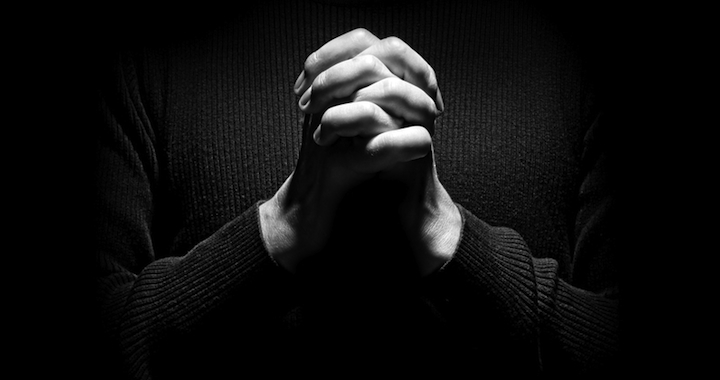It took me much longer than it should have to identify that I was going through postpartum depression. There were so many logical ways to explain away the feelings. I was hormonal. I wasn’t sleeping. My social life had turned into an isolated, nonstop breastfeeding session shut within the four walls of my home. I was recovering from unexpected and traumatic surgery, a birth plan gone awry.
Surely it wasn’t depression. Surely the depression wasn’t mine.
But it’s difficult to admit we’re hurting.
We have plenty of voices to process when we are dealing with pain, and the more wounded we are, the harder it is to sift them. Others are hurting. Others have hurt. This is normal. This has always been normal. You just aren’t reacting to it correctly. You’re too sensitive. You’re milking it. You aren’t strong enough. It’s all in your head. Don’t play the victim.
And we entertain them until we can no longer.
For me, this moment happened in the Kroger parking lot, four months after my son was born. I had spent hours at home trying to write a grocery list that would have taken me minutes just half a year before. Able to make not one single decision, I resolved to work it out in my car once I’d gotten to the store. But the confusion in my brain and the lump in my throat and the tightness in my chest made it absolutely impossible to get even a scratch down on paper. A panic attack followed. And another. And another.
Back home, in the fetal position, with zero groceries, I finally allowed myself to admit something was wrong. Not when I was comparing my story to other moms, not when I was attempting to logically sort out the details to see if they were justifiable. The admittance came when I decided that I could not live this way any longer.
Saying the words “postpartum depression” was freeing. It allowed me a chance to admit a reality that I could then, with much help, come out of. But my first step was to share that something wasn’t right, and I wasn’t free, and I needed healing.
Thank God that my world around me was ready to receive my hurt–ready to embrace my words and my pain without redirecting the conversation to another’s pain or listing all the ways that I “shouldn’t be hurting right now.” Had that been the case, I think I would have sincerely lost my mind.
Pain met with rejection is the formula for chaos, within and without.
And because of this experience with pain in my own life, I am beginning to believe that chaos is what we will continue to get until we begin listening to our black brothers and sisters.
My full confession is that this time last year, when my Kroger-style breaking point was happening for the black community in Ferguson, I was emphatically responding to the Black Lives Matter cry with an All Lives Matter decree. It was in fact the all-inclusive, fully human perspective to embrace, I felt. Every single life is precious, therefore we must not get stuck on movements that divide.
But then I started listening to my brown and black friends who were simply asking me to do just that…listen. These friends who have for far too long had their pain explained away by churches, hate groups, the media, and their own minds, were putting words to their wounds. These friends were allowing themselves to admit that something was wrong–not by comparing their stories to another people group’s, not by attempting to logically sort out the details to see if they were justifiable, but by deciding that they could not live this way any longer.
What I began to hear them saying was that once the nerve had been reached to share with the world that a community is hurting deeply, my “all lives matter” retort to “black lives matter” might as well have been me redirecting the conversation back to someone else’s pain or saying “you shouldn’t be hurting right now.”
This is the formula. This is where it happens.
I was once convinced that this specific and pointed compassion was threatening to unity. And now I realize that my response was another chaos-inducing rejection to pain.
The Black Lives Matter movement was trying to tell me that, in a world of hurt, theirs is no longer bearable or tolerable.
But there are other moms who are more depressed than you are.
But don’t you think that this is just a season?
Sorry to interrupt you, but I’m hurting too…
Like Jesus with the Samaritan woman, the children, the lepers. Like Jesus with the gentiles, the prostitute, and the tax collectors…we must be a world that is ready to receive another’s specific hurt without feeling threatened, without imposing our own agendas and protecting our own blamelessness.
Every good conflict management teacher and marriage counselor knows the art of listening to pain without batting it away. Every good friend knows that the surviving relationships are the ones that have been able to react to the words “I’m hurt, ” and “you’ve hurt me” with a listening ear, the question Can you tell me more?, and a willingness to walk together to the other side.
I am learning that Black Lives Matter is not a threat to all lives. It is not an effort to divide citizen against cop, right against left, or dark against pale. It is a cry of pain asking to be acknowledged…a step in sharing that something isn’t right, and people aren’t free, and that folks need healing.
To the movement: Forgive me for rejecting your pain. Forgive me for adding to the chaos. I am listening. I am ready to prove that all lives do matter by focusing on the black ones right now. It is important, it is necessary, it is pressing.

